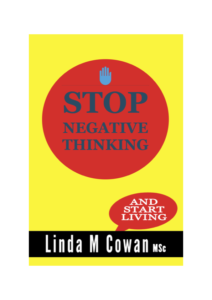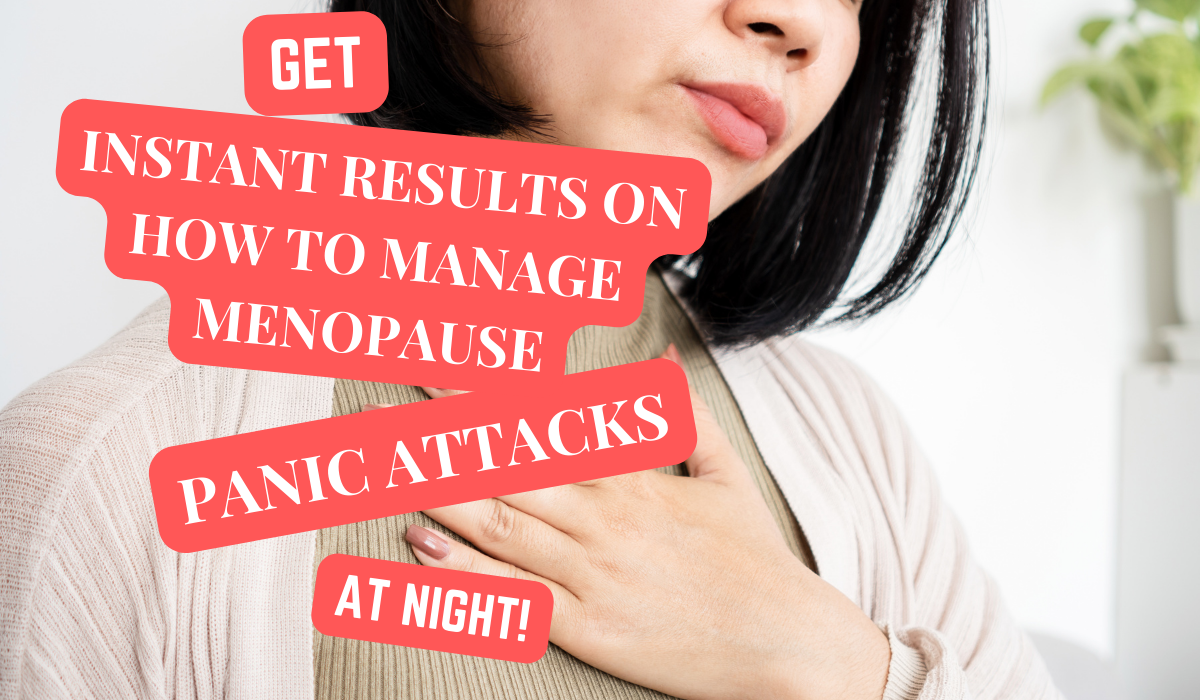INTRODUCTION

FREE EBOOK DOWNLOAD
To help manage menopause panic attacks at night, I am attaching a FREE ebook of mine called ‘How to Stop Overthinking.’ Just press the above link.

HOW TO MANAGE MENOPAUSE PANIC ATTACKS AT NIGHT
As a therapist with many years of experience, I’ve had the privilege of guiding numerous women through this crucial time in their lives. It’s not uncommon for them to seek therapy as they navigate the complex maze of menopause, compounded by the everyday challenges of life transitions, such as children growing up and leaving home—a phenomenon often referred to as ‘the empty nest syndrome’.
In addition to these emotional and psychological adjustments, they are also grappling with significant hormonal changes that can have profound effects on their physical and mental well-being. This unique intersection of life events and menopausal symptoms, including panic attacks at night, highlights the importance of understanding and addressing the holistic impact of menopause on a woman’s life.
Menopause is a significant phase in a woman’s life, marked by the end of menstrual cycles and a myriad of physical and emotional changes. Unfortunately, panic attacks at night can be particularly distressing, leaving many women searching for relief and understanding. These nocturnal disturbances can significantly impact sleep quality and overall well-being, making it crucial to find effective coping strategies.
In this blog post, we delve into understanding why menopause can trigger panic attacks at night and offer nine practical ways to manage these episodes, aiming to restore peace and comfort to your nights.
9 STEPS ON HOW TO MANAGE MENOPAUSE PANIC ATTACKS AT NIGHT
1. UNDERSTAND THE LINK
Recognize that hormonal fluctuations during menopause can contribute to anxiety and panic attacks. Knowing the cause can empower you to seek targeted solutions.
2. ESTABLISH A SOOTHING BEDTIME ROUTINE.
Create a calming pre-sleep ritual. Consider practices like reading, taking a warm bath, or meditation to signal your body it’s time to wind down.
3. MAINTAIN A COMFORTABLE SLEEP ENVIRONMENT.
Ensure your bedroom is conducive to sleep; this will help menopause panic attacks at night. Keep it calm, dark, and quiet. Consider using a fan or white noise machine to create an ideal sleeping atmosphere.
4. LIMIT STIMULANTS.
Reduce the intake of caffeine and alcohol, especially in the hours leading up to bedtime, as they can exacerbate anxiety and disrupt sleep.
5. PRACTICAL RELAXATION TECHNIQUES.
To help the menopause panic attacks at night, engage in deep breathing exercises, progressive muscle relaxation, or guided imagery to calm your mind and body when you feel a panic attack coming on.
If this doesn’t help, please go to my YouTube channel and watch this video, ‘Why I don’t have panic attacks any more’ It’s one of my most popular YouTube videos; many people have said it has helped them with their panic attacks.
6. STAY ACTIVE
Regular physical activity can help reduce overall anxiety levels and improve sleep quality. However, avoid vigorous exercise close to bedtime, as it can have the opposite effect.
7. SEEK SUPPORT
Talking about your experiences with friends, family, or a support group can provide comfort and insights into managing your symptoms. If you find that you need more in-depth advice regarding your panic attacks, seek the advice of a therapist.
8. CONSIDER DIETARY ADJUSTMENTS
Incorporate foods rich in phytoestrogens (like soy and flaxseeds) and magnesium (such as leafy greens and nuts) to help balance hormones and support a calm state of mind.
However, it’s good to keep in mind that research is still ongoing to determine the effectiveness of supplements. To date, research is still being conducted to assess their effectiveness.
9. CONSULT HEALTHCARE PROFESSIONALS.
Consider seeking advice from a healthcare provider. They can offer guidance on hormone replacement therapy (HRT), anxiety medications, or alternative therapies suited to your specific needs.
CONCLUSION: MENOPAUSE PANIC ATTACKS AT NIGHT
Menopause is a natural transition that doesn’t have to be fraught with sleepless nights and anxiety. By understanding the causes of menopause-related panic attacks and implementing these nine strategies, you can significantly alleviate your symptoms and reclaim your night’s peace. Remember, you’re not alone in this journey. With the right approach and support, you can quickly and confidently navigate this phase of life. Let’s embrace this change with knowledge and empowerment, paving the way for serene and restful nights.




